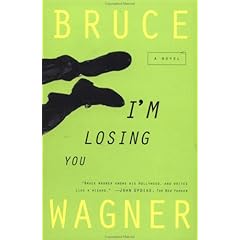
It’s like it’s 1997 again, said one of the industry vets I was having lunch with at the
IAB Social Media and User Generated Content Conference on Monday. If that’s the case, I want to know, where’s my ping-pong table? Why can’t I have a margarita machine in my office? Where is the launch party and, more importantly, my stock options?
Let’s face it, this is 2008. I’m not a millionaire on paper or anywhere else except the land called make-believe. Friendster, once the boon of noncommittal urban hipsters is now relegated to popularity only among Pilipino teenagers, and your grandmother has a Facebook page. Is social media the next big thing? In case you do not have the time or the cash to attend such an event, here is a summary of the day’s events:
Keynote: Seth Goldstein of Social MediaHe talked about the social media challenge, how volume is up and effectiveness is down, but what struck me the most was how he mentioned his wife had come up with the term “social media” a couple years ago and they registered the URL. Which just goes to show you that when picking a mate, whimsical brilliance can go just as far as sheer dollars and cents in terms of net worth. Try to shack up with someone who thinks of good ideas and registers those domains, as your beloved may be in possession of the next google.com type idea!
 It's All About Performance.... Isn't It?
It's All About Performance.... Isn't It?, with a bunch of people from DoubleClick BuzzLogic and AvenueA Razorfish
I love it when marketers talk about harnessing the power of the social media frontier. They are herding cats, as it were. That’s not the right expression exactly. What’s the term for taking a giant grass-roots movement and when your brand happens to come up, acting like you’ve influenced it? David-and-Goliathism? When David is the marketers and Goliath is the user base? There’s an anarchic side of me that loves this—that if you were in a pessimistic mood, you could say that marketing is in everything, or if you’re a believer in the social media space, you could say that people are taking control of brands from marketers.
Consumer Panel with Ideas to GoCouple of things that I noticed here: focus groups are always funny. This was a group of so-called “creative consumers” who are impaneled by a group called Ideas to Go. They are like these strange animals, these people who do not work in marketing. They are seventeen year olds worth being flown out to sit on a stage in front of two hundred puzzled marketers in suits. The company had them list “social medias” that they consume. The moderator seemed like a sort of actor who rolled big, jargony words around on his tongue.
Facebook workshopAgain, I sat there wondering—are these marketers really creating phenomena on social media sites, or at they witnessing phenomena and then claiming credit? There was a dude who markets Proctor and Gamble brands like Tide with public outreach efforts like one called “
Loads of Hope.” You can buy a hipsterish ironic t-shirt with a retro Tide logo and all proceeds with go to New Orleans, where presumably laundry detergent money washes away all sorrows. I was thinking there’s so little brand differentiation among detergents—they are all bright boxes with splashy comic book-like lettering—that it seems a bit of a lost cause to try and stand out. Yeah, it may be cool to wear your retro Tide shirt, but does that really make anyone think about the brand? I wasn’t sold on it.
There are days I long to escape to a land with no marketing in it. What would such a world look like? Is it a magical place in Canada that you can only reach by dogsled? And can you give me some directions?
 It's unfortunate when you are the second book to write about layoffs and office life in the first-person plural. Man, would that suck, but such is the zeitgeist. I'm trying to write about fictionalized office life, so I'm interested in books that do it well. Because working is boring, writing about work is boring. When a writer captures the mundane and stifling in a fresh, even inspiring way, it's a truly remarkable accomplishment. When books about work take off, I think it's through capturing some kind of idiosyncratic singularity (like Ferris's book or the underrated Big If by Marc Costello) or the workplaces is a kind of accessory to the an overall commentary they are making to American culture (Palladio).
It's unfortunate when you are the second book to write about layoffs and office life in the first-person plural. Man, would that suck, but such is the zeitgeist. I'm trying to write about fictionalized office life, so I'm interested in books that do it well. Because working is boring, writing about work is boring. When a writer captures the mundane and stifling in a fresh, even inspiring way, it's a truly remarkable accomplishment. When books about work take off, I think it's through capturing some kind of idiosyncratic singularity (like Ferris's book or the underrated Big If by Marc Costello) or the workplaces is a kind of accessory to the an overall commentary they are making to American culture (Palladio).
















